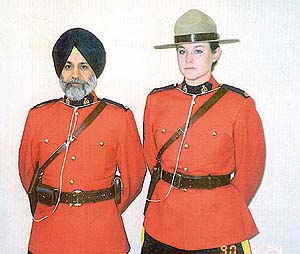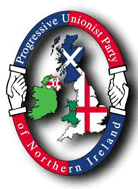
Let’s take a brief look at the peelers today. First, there’s been this big kick-up about the Sped scheme. For the uninitiated, Sped stands for Special Purchase of Evacuated Dwellings, and is a scheme whereby people who have been intimidated out of their homes have these homes bought by the government, and are then given the money to resettle. It’s a very Norn Iron scheme in that it does fulfil a useful function for people in dire straits, but it’s also wide open to scamming. It was well known during the Troubles that some RUC officers would quite cynically apply for rehousing money to boost them up the property ladder.
Anyway, it seems that around seventy people have been waiting in limbo to be rehoused, because several months ago the Sped kitty ran dry. This must have been known about, at least in the Department for Social Development, but nobody seems to have regarded this as a matter requiring attention. That was until this last week, when it became apparent that there was a cop on the rehousing list, who was having a hard time of it while waiting to be rehoused. All of a sudden, social development minister Margaret Ritchie and finance minister Sammy Wilson were falling over themselves to get the fund replenished. Well, if that’s what it takes to get things moving…
Elsewhere, the invaluable Newton Emerson was taking on the subject of the enormous police budget. The peelers are currently putting on the poor mouth as a result of having to make savings of £17 million out of their £1.2 billion annual funding. A few highlights from Newt’s deconstruction:
The PSNI feels aggrieved because it is already cutting long-term spending at the Treasury’s request.
Nevertheless, an organisation of this size that cannot save another 1.4 per cent has its wire stretched pretty thinly indeed.
To see how stretched, you need to examine the PSNI’s annual report…
It includes such budget items as £30m for compensation and injury awards, £11 million for “agency services (other)” and £15.8m for “supplies, catering and publications”.
Essex Police claims to have saved £11 million in a year through tackling trivial expenditure, leading to The Daily Mail headline ‘Police force puts 239 new officers on the beat by cutting down on tea and biscuits’.
Perhaps similar parsimony would yield similar results here. But the PSNI believes it is cutting down on the tea and biscuits quite enough already…
Overtime and the size of the full-time reserve have been cut by a third in the past three years and hiring new community police support officers has been postponed for the next three years but pay and pension levels are seemingly sacrosanct. In fact, the PSNI is still budgeting for annual rises of 2.5 per cent for officers and 4 per cent for civilian staff. Why are even modest cuts in police pay so completely out of the question? Inflation is now zero and wages have outpaced inflation for years.
With nearly 10,000 applicants for 440 posts this year, meeting all the Patten requirements for improved representation, there is no issue with attracting recruits.
A 3.2 per cent across the board cut would save £17m, protect jobs and services and leave everyone no worse off than they were in 2007.
There is no need to impose even this slight reduction on rank-and-file officers and civilian staff. A cut could be skewed heavily towards senior management, who are absurdly overpaid.
The chief constable makes £184,000 a year, or half as much again as the secretary general of the United Nations. This does not include a house, car, pension and expenses. Dozens of other uniformed and civilian PSNI managers earn six-figure sums. This week The Belfast Telegraph uncovered details of an additional £100,000 bonus scheme for the PSNI’s eight most senior staff. Information on further bonus schemes is being withheld under the increasingly useful Data Protection Act. There is no evidence whatsoever that these schemes are required to attract or retain qualified people.
Amen to that. Actually, given the fact that only a 1.4% cut in total expenditure is being asked for, you wouldn’t even need to cut headline pay – a slightly more parsimonious line on compo and overtime would do the trick. But then, the Norn Iron cops wouldn’t know parsimony if it was handed to them on a china plate with tartare sauce. And there’s a big section of our political spectrum which believes the peelers should get whatever resources they ask for.
Finally, there’s the ongoing row about the closure of stations. I’m not going to get into the trouble in Short Strand that followed the Provos’ celebration of the closure of Mountpottinger barracks, save to wonder whether Short Strand’s policing needs really require an enormous Fort Apache-style construction in an area with an acute housing shortage. The point is the reaction of the unionists. Let’s leave aside the Fermanagh unionists, who are professing to be much exercised by the dissident threat and who reckon that the Israeli “separation barrier” is an example of best practice when it comes to porous borders. Much deeper into the north, you can see evidence of the common unionist belief that every hole in the hedge needs to have a fortified barracks.
There was a fascinating example of this in the Newtownards Chronicle the other week, where local DUP MLA Simon Hamilton was brandishing a leaked Policing Board document naming a number of rural stations that have been earmarked for possible closure. Many of these stations, located in tiny villages with virtually no crime, are only vestigially manned, and local folks are aware that you’ve a better chance of finding a cop down the Chinese than at the station. Nonetheless, Simon reckons this to be a threat to a vital public service.
Counterposed to this was the technocratic argument from acting Chief Constable Judith Gillespie, who posited that the physical infrastructure of policing in the north was a hangover from the Troubles and not really suited to modern policing. Specifically, she said that there were too many stations, they were too big and they were in the wrong places. By offloading some of its surplus real estate, she reckoned, you could have a more mobile and responsive police force while staying within budgetary restrictions. Simon, however, was having none of it.
Actually, Simon Hamilton’s whole approach to this issue is illustrative of the common unionist position, that they want to be British, and for the British state to lavish them with goodies, but they don’t want to pay for it. A common conversation might go like this:
Unionist: We have to keep the RUC Reserve.
You: Who’s going to pay for it?
Unionist: Don’t care.
And so the Chronicle debate could be summed up along similar lines.
Simon: See these police stations in Killyleagh and Saintfield? We need to keep them open, and fully manned forbye.
Judith: Our budgetary settlement won’t allow for that.
Simon: Don’t care.
Of course, nationalist politicians have a similar attitude. They just have different priorities.






